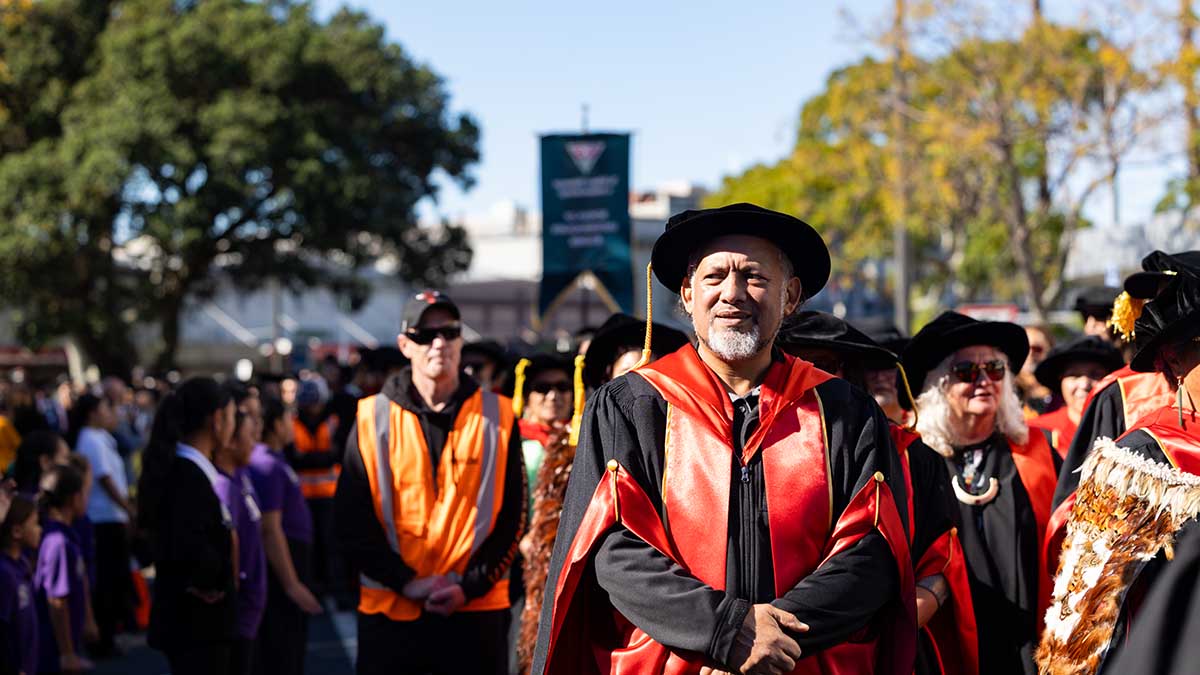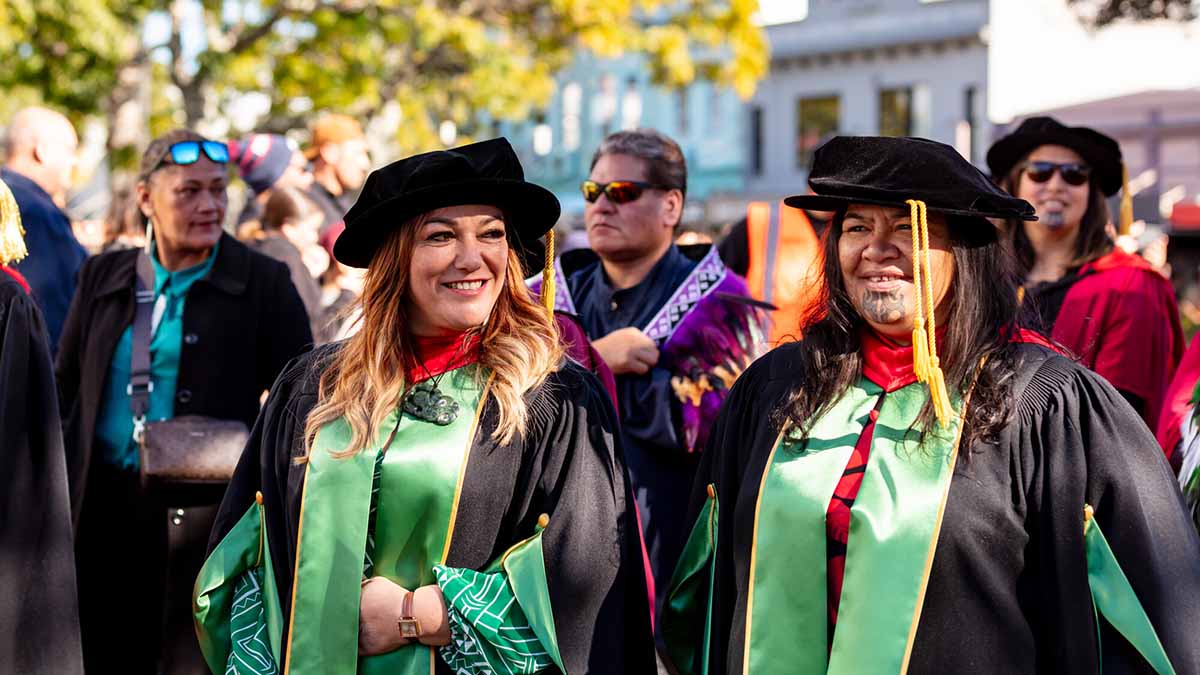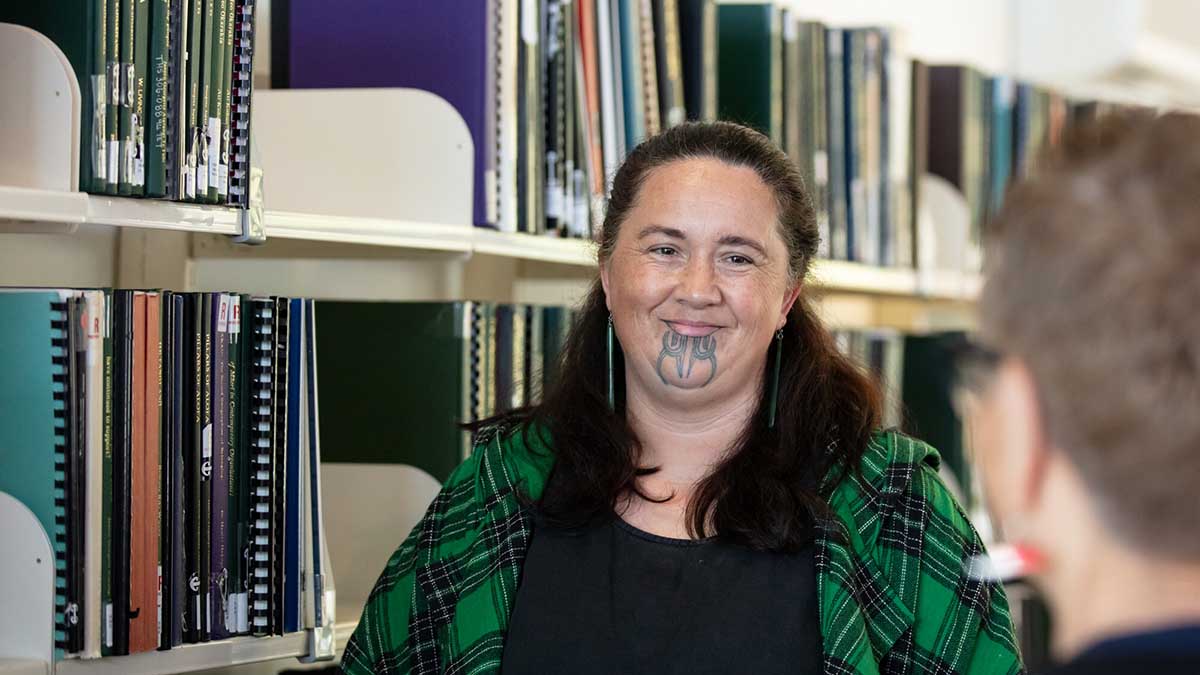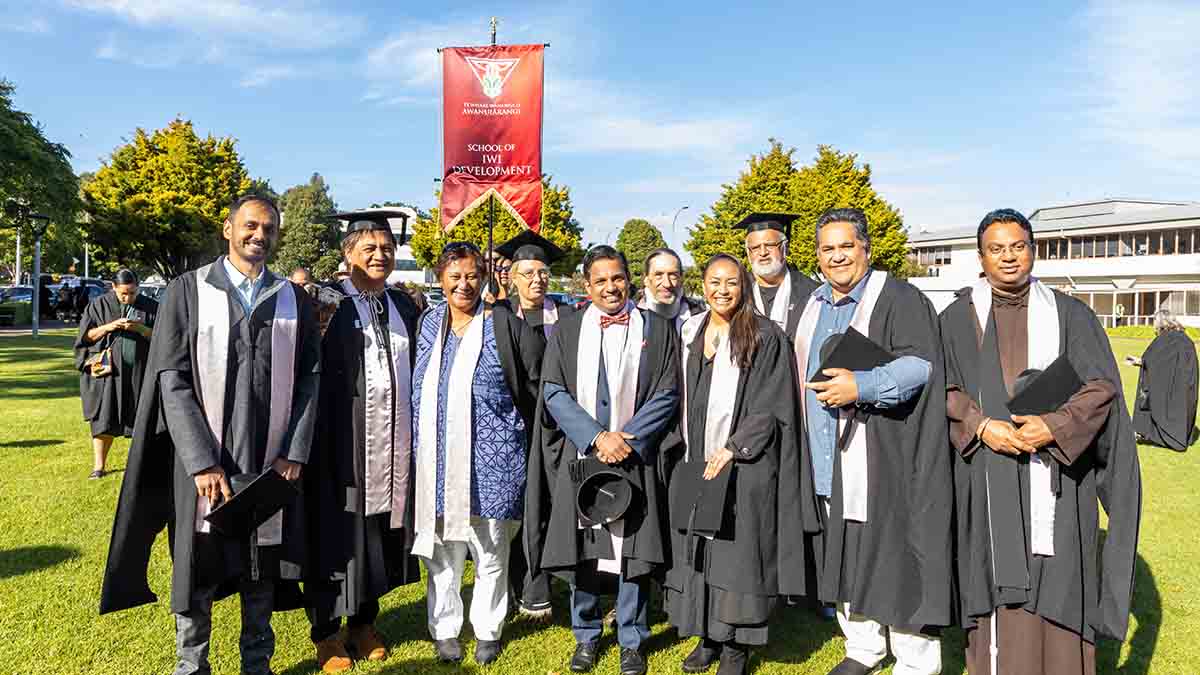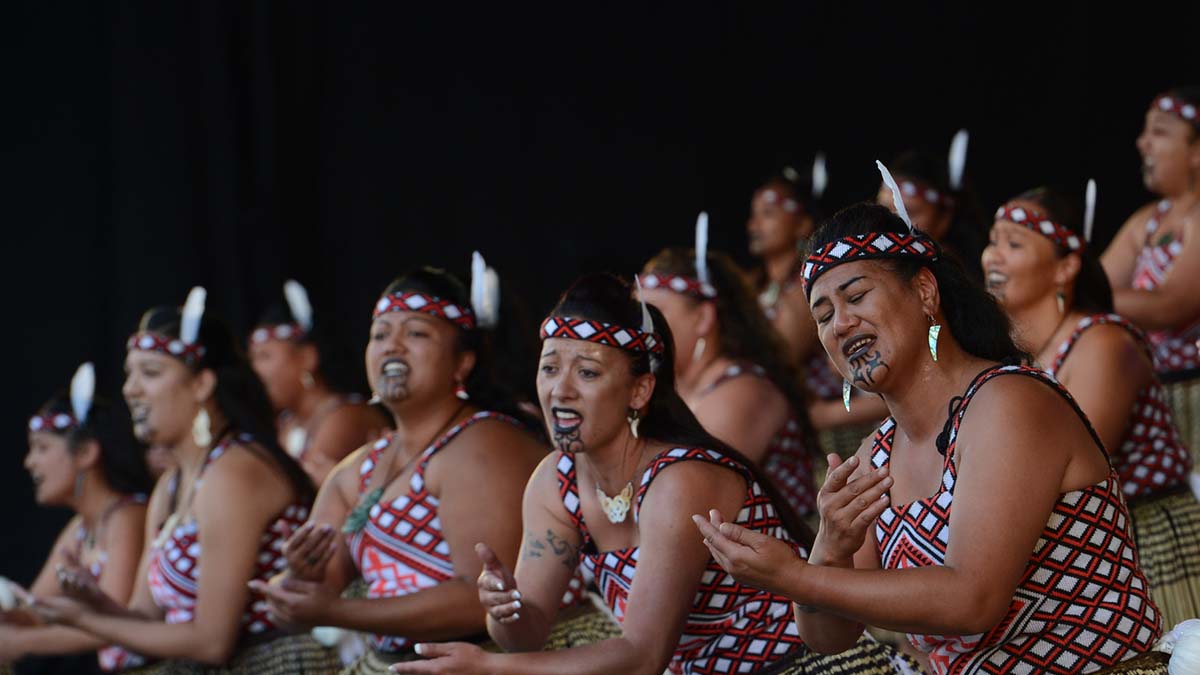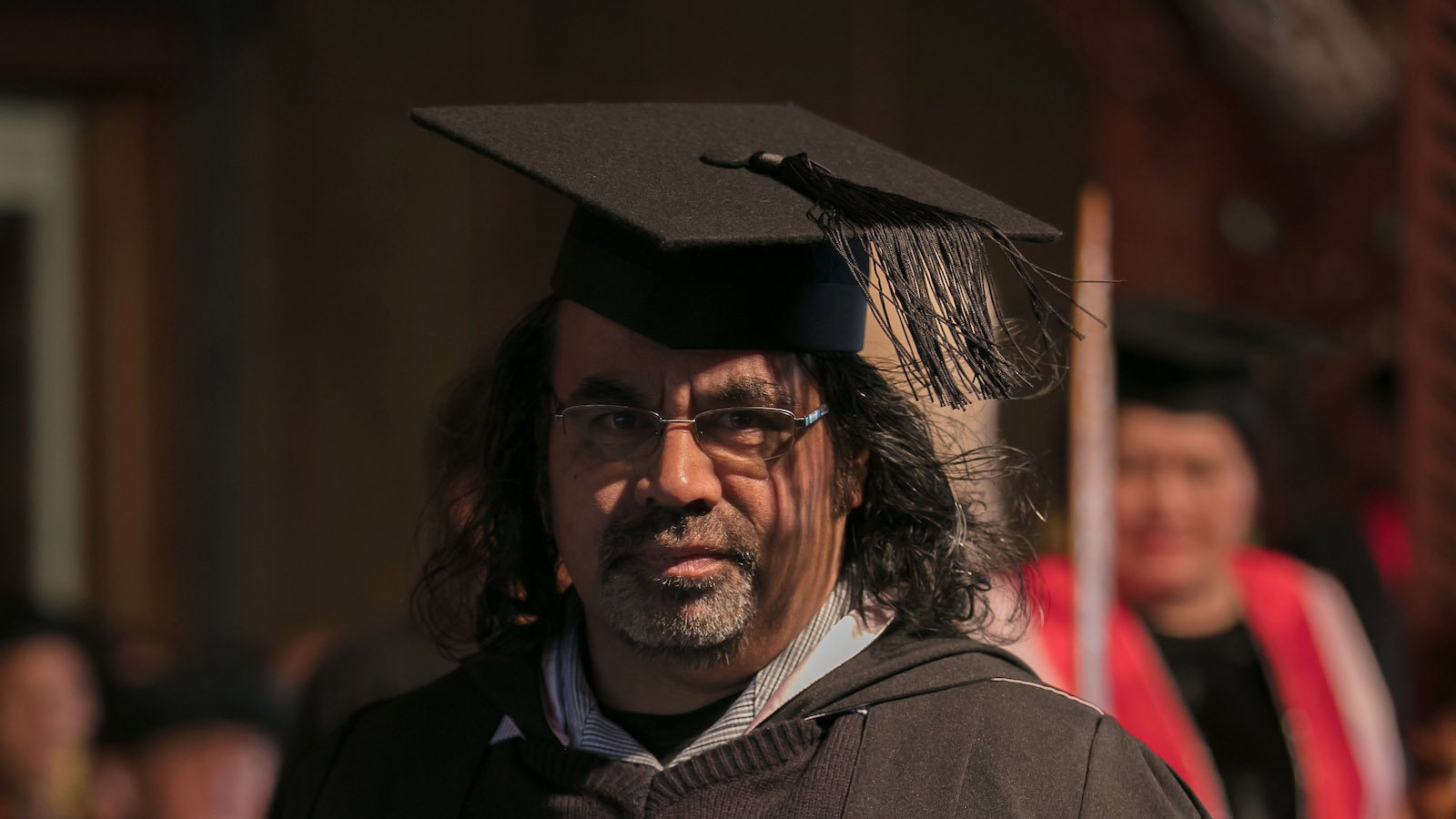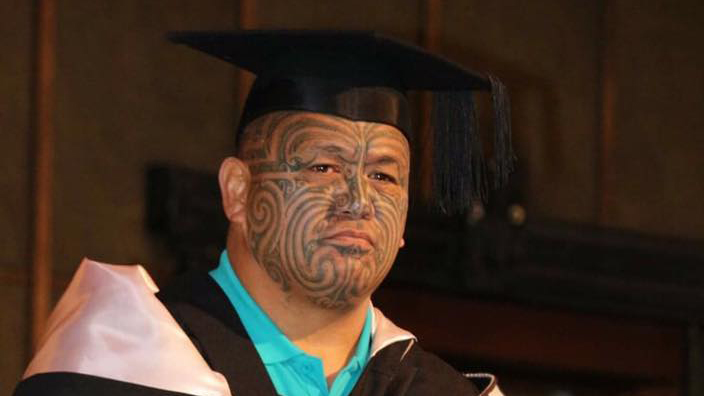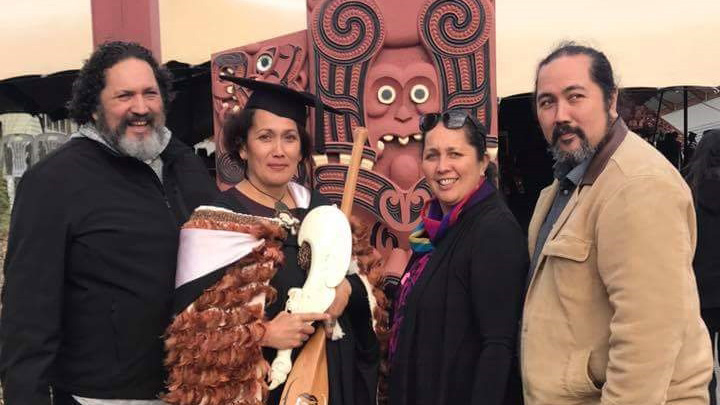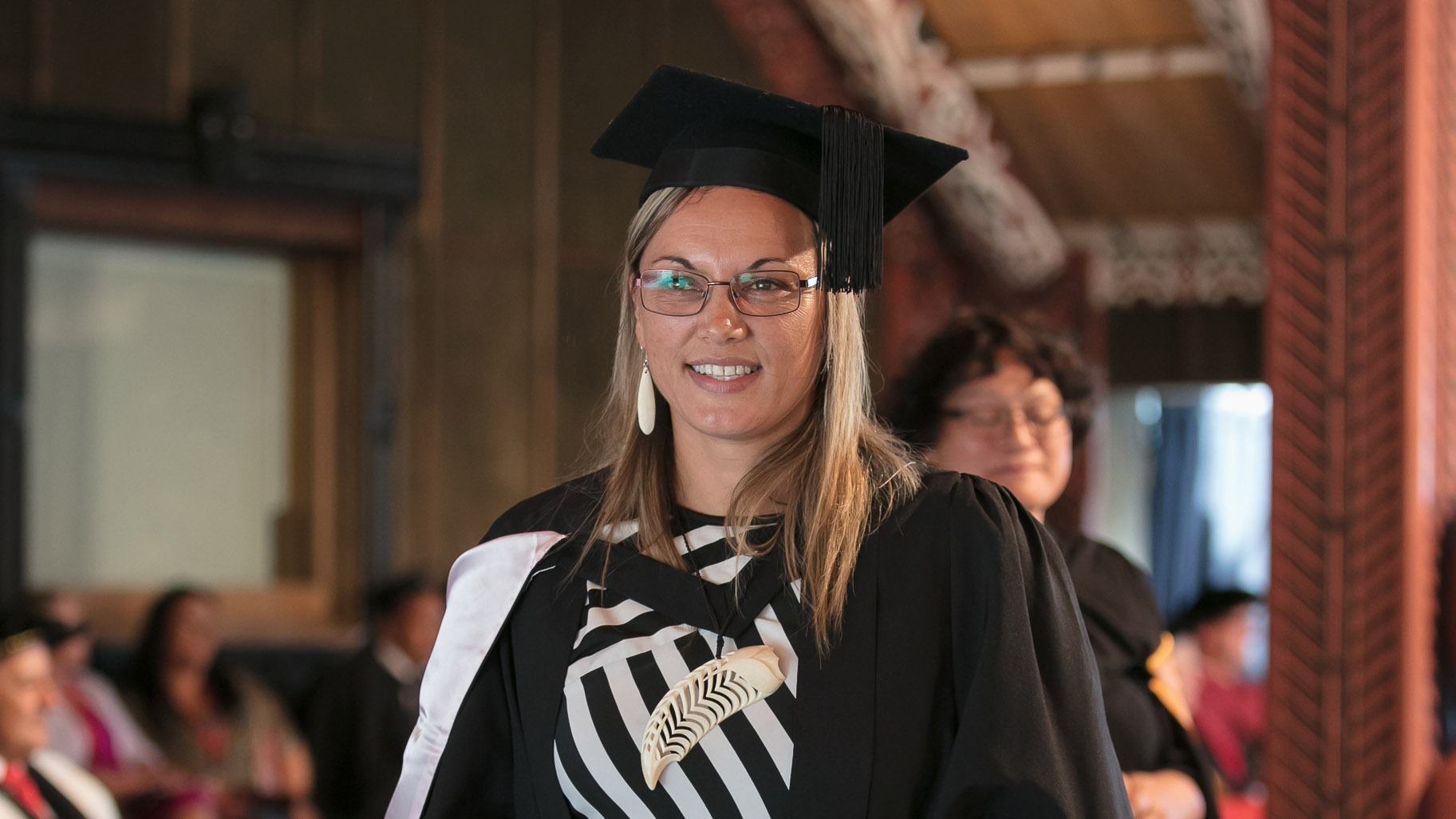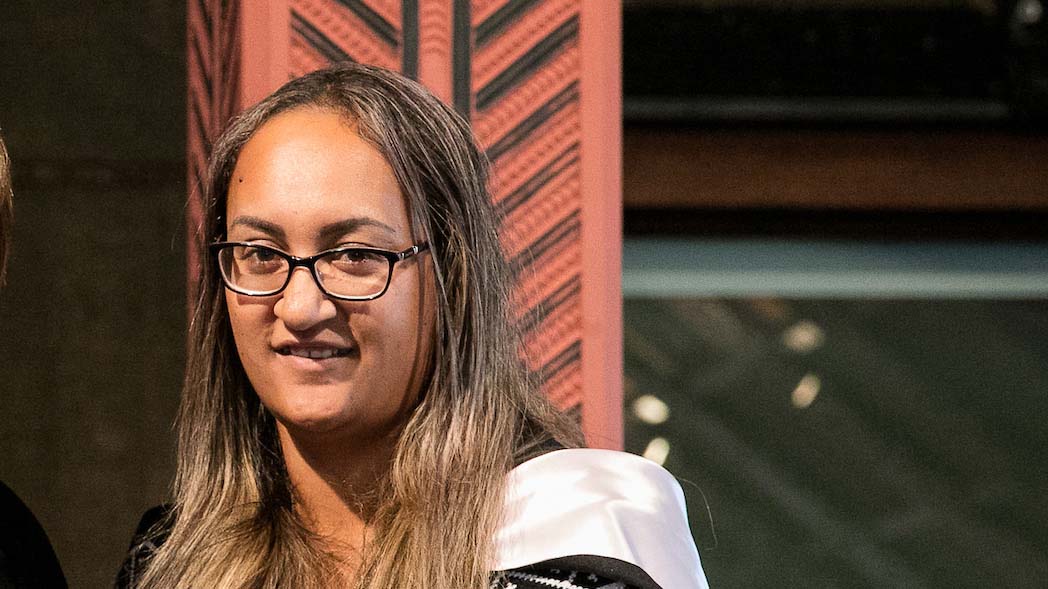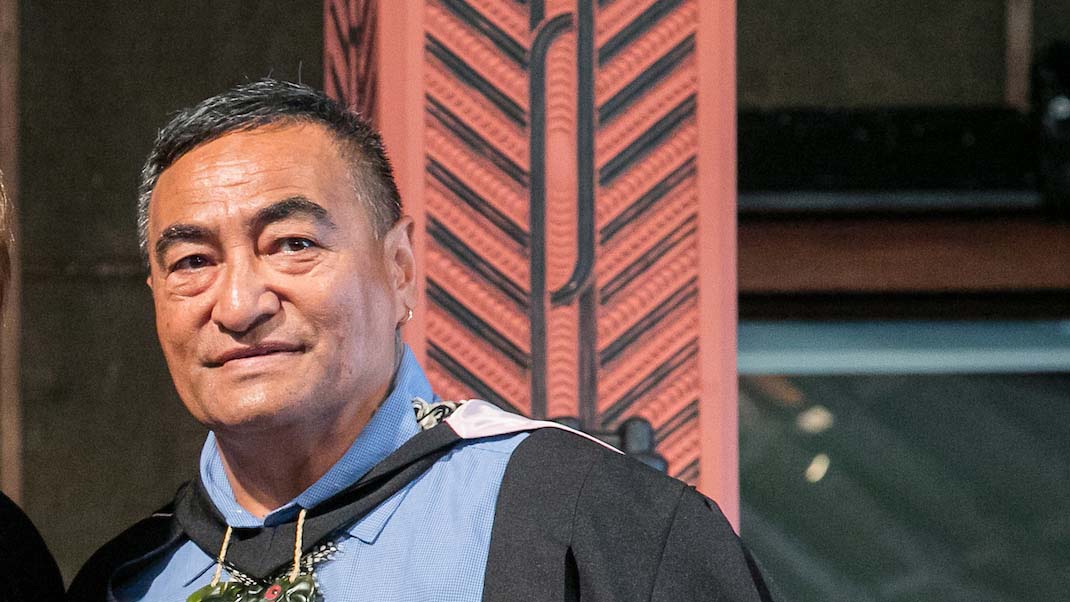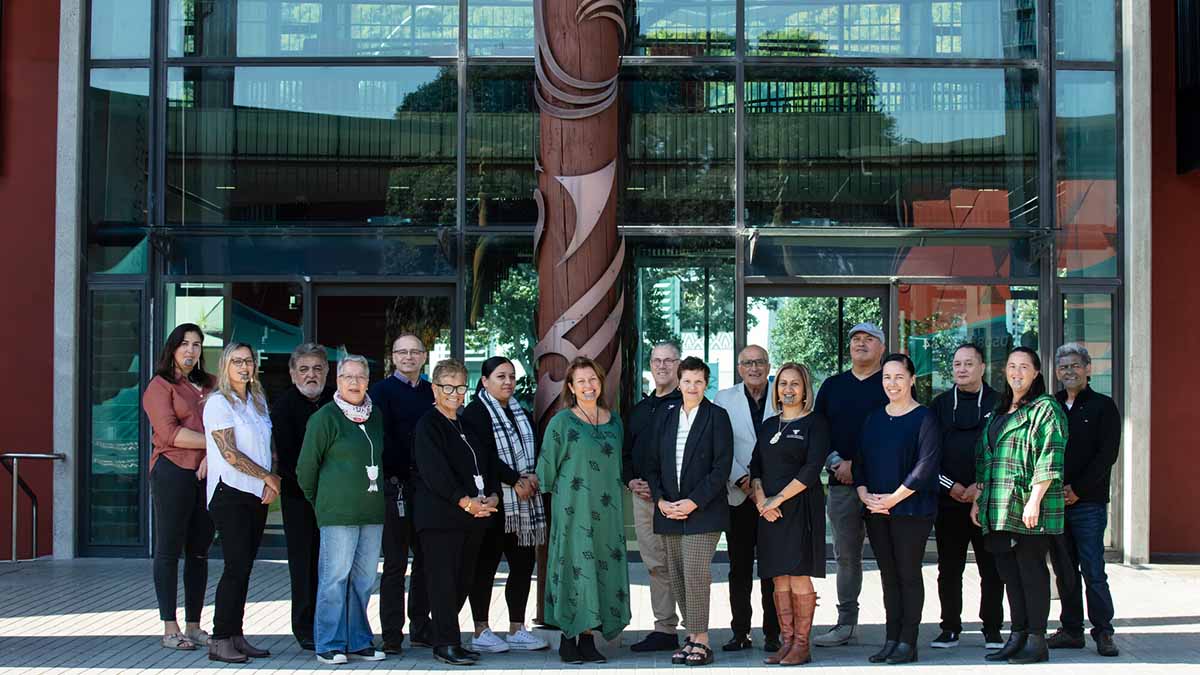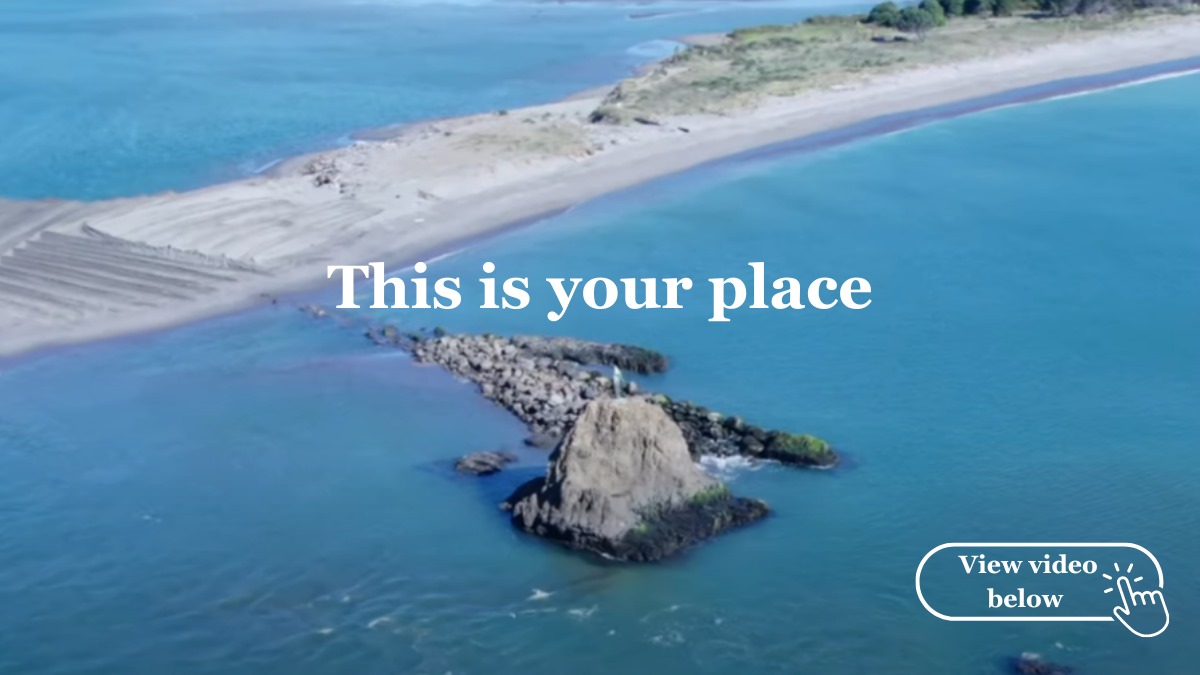Masters Degrees
Master of Indigenous Studies and Master of Māori Studies
The two master's degrees provide a friendly and supportive learning environment for students through the mixed delivery model which includes, online lectures, one-on-one lecturer-student tutorials, workshops, and Wānanga.
After completing a minimum of four taught papers (or complete the qualification based on taught papers only), students may opt for either a dissertation or thesis. This is an exciting time in a master’s degree where students are often completing research on a topic close to their hearts – it might be to do with their hapū or iwi; the school they teach in; or a social service, health or community issue. Alternatively, the thesis might have a business, economic, art or environmental focus.
Every year an increasing number of our students also choose to write their thesis in te reo Māori. This is expanding the depth and breadth of Māori literature across all subjects – in te reo.
There are 8 thesis options available in the two master's degrees (Master of Māori Studies and Master of Indigenous Studies). These options enable students to study and research fields such as Māori Studies, Environment, Māori Performing Arts, Business, Health, Creative Arts, Indigenous Studies and Education
Duration
The master's programme takes at least two years (and no more than six years part-time). Students can choose between the following options:
- four papers (120 credits) and a thesis (120 credits)*; OR
- six papers (180 credits) and a dissertation (60 credits)**; OR
- seven papers (210 credits) and a research project (30 credits)**
- eight taught papers (240 credits) including two level 9 papers
including 30 credits from IHI803 (Research Methodologies and Methods) and in the case of 3, a further 30 credits from IHI806 (Selected Topic).
* This option will lead to the PhD programme offered at Te Whare Wānanga o Awanuiārangi.
** These two pathways can lead only, in the first instance, to the Professional Doctorate offered at Te Whare Wānanga o Awanuiārangi.
Visit the Careers NZ website for more information on this qualification.
From time to time a paper may be offered part-time across two semesters. See annual semester offerings.
Cross credit application
On completion of any papers at Level 8 or above, these may be considered for cross-credit against the programme. Only papers to the value of 60 credits can be cross-credited. On enrolment, a Cross-credit application is completed.
Online activities
Courses have an online element through supervision and eWānanga LMS. Experience using a laptop and the internet is strongly recommended for postgraduate study.
Commencement and venue of all papers may change and is conditional on achieving required student enrolment numbers and geographical location of students.
Students may pathway into the Master’s degree. Please contact us to find out more.
Dates
Sem 1: Feb to Jun 2026, Sem 2: Jul to Dec 2026, Full-year offerings: Feb to Dec 2026Duration
40 weeks per year, 20 weeks per semesterCommitment
Blended learning including noho marae/wānanga, online learning and self-directed learningApplications close
Sem 1: Feb 2026, Sem 2: Jun 2026Locations
Noho are delivered in WhakatāneRequirements
View link for detailsPathway to
View link for detailsFees
2026 Tuition fees: $1800.00 (per paper or research project), $3604.00 (Dissertation), $4379.00 (Thesis). Note fees are updated annuallyPlease note: Offerings for 2026 are still being finalised. We hope to have these updated soon.
2025 course offerings
Full Year Offerings
Thesis (120 credits)
The thesis embodies an investigation relating to a topic identified by the student. Choose the discipline that relates to your topic:
- IND800 - Indigenous
MAO800 - Māori
AKO800 - Education
MPA800 – Māori Performing Arts
MIB800 – Māori/Indigenous Business
TAI800 - Environment
TOI800- Creative Arts
ORA800 – Health Studies - Papers marked with * indicates students can choose to enrol in this paper as a single semester course full-time, or as a double semester course part-time.
IHI801 Research Project (30 credits)
Course Type: Elective
- Description: The research project embodies the results obtained by a candidate in an investigation relating to some part of the subject of specialisation as outlined in the student's research proposal and as supervised by the Supervisor. The research project will entail a literature review, research methodology/methods and results of a research investigation. The research project shall not normally exceed 10,000 words.
IHI802 Dissertation (60 credits)
Course Type: Elective
- Description: The dissertation embodies the results obtained by a candidate in an investigation relating to some part of the subject of specialisation as outlined in the student's research proposal and as supervised by the Supervisor. The dissertation contains a thorough literature review, research methodology/methods and results of an extended research investigation. It usually doesn't exceed 20,000 words.
-
IHI805 Special Topic (30 credits)*
Course Type: Elective
Description: This course allows for a special area of study to be offered by a visiting lecturer or invited lecturer with a strong background in a given area of academic study. The lecturers for this course will be suitably qualified to the level of Masters. The offering of this option will depend on the availability of visiting lecturers. The visiting lecturer will develop a course outline directly related to their academic area of expertise in consultation with a designated representation of Graduate studies staff. Consideration also will be given to areas of valid demand identified among Masters students. This paper is a flexible course drawing on the experience and knowledge base of a recognised lecturer.
IHI806 Selected Topics (30 credit)
Course Type: Elective
- Description: This course enables students to study in-depth selected topics from the field of Indigenous Studies or Māori Studies through a programme of readings, seminars and directed research. Students will be supervised by a lecturer in whose area they are studying. The student will produce a research-based project as part of their assessment.
Semester 1 offerings
REO803 Tā Te Māori Rangahau Kōrero (30 credits)*
Course Type: Core - Te Reo Māori Thesis writers
Description: Ko te ngako o te kaupapa nei he wānanga i ngā tūāhuatanga o te rangahau mō te hunga kei te tuhituhi ki te reo Māori, kei te whai hoki i te tirohanga Māori. Ka āta tirohia te āhua o ngā putunga rangahau a te Māori, mō te Māori anō, i tuhia ki te reo Māori, i whāi rānei i ngā tikanga a te Māori hei huarahi rangahau mā rātou e mārama ai te āhua o tā te Māori tāna rangahau kōrero. Ko te tikanga ia he āta wānanga i ngā whare kōrero, i ngā marae kōrero, i ngā pātaka kōrero o te Māori, ngā āhuatanga i kīia ai te Māori he iwi whai tikanga, he kawa anō ōna hei āhuatanga rangahau māna. Ka mutu ko te reo Māori te tāhuhu o te kaupapa nei. Māna e kōkiri, māna anō e hua ai te ora o te mātauranga, o te wānanga, o te rangahau ki te whai ao, ki te ao mārama.
IHI803 Research Methods and Methodologies (30 credits)*
Course Type: Core - Thesis Writers
Description: This paper will prepare students for the research component of their degree. Students will become aware of a range of ethical considerations informing future projects of research they may undertake and will develop familiarity with associated research terminology. Students complete a research proposal and ethics application in this course.
MAO820 Te Whakarauora (30 credits)
Course Type: Elective
Description: The purpose of this paper is to provide in te reo Māori an interpretation, analysis, an examination of the highly ornate oral and written literature contained in the ceremonial performance of karanga and whaikōrero. Within the performance of karanga and whaikōrero other ritualised narratives such as poroporoaki (farewell calls), whenua (land) combined with ā-whanau, ā-hapū, ā-iwi experience come to the fore.
Students enrolling in this course should note that a high degree of Māori language proficiency is essential to succeed. Students must be able to operate successfully in an immersion Māori learning and teaching environment and are expected to submit assignments in te reo Māori.
MAO822 Te Reo O Te Mōteatea (30 credits)
Course Type: Elective
Description: This core subject of this paper is mōteatea. Mōteatea will be examined in the reo and english in terms of its analysis, interpretation, inquiry of advanced Māori oral and written literature relevant to Mātaatua Waka; whānau, hapū and iwi-marae wānanga-mōteatea. Traditional and contemporary mōteatea contains insightful poetic commentaries, philosophies, values, biographies, prophetic identities, quotes, biblical passages, historical literature that explain complex views on a range of important and endure knowledge issues. Tauira will be expected to research, compile and present whānau, hapū and iwi mōteatea oral and written literature in written form and seminar presentation outlines to support mōteatea revitalisation aspirations. Students enrolling in this course should note that a high degree of Māori language proficiency is essential to succeed. Students must be able to operate successfully in an immersion Māori learning and teaching environment and are expected to submit assignments in te reo Māori.
IHI808 Kaitiakitanga (30 credits)
Course Type: Elective
Description: This paper examines the concept of Kaitiakitanga as it relates to Māori Resource Management. The course is grounded within Māori Knowledge systems and philosophies of knowing and understanding from a Māori world-view. This world-view is based on Mātauranga and Kaupapa Māori principles and values and validated through Āhuatanga Māori cultural performance indicators. The paper provides a critique relating to the relativity of traditional and contemporary concepts of Kaitiakitanga particularly as it relates to Māori people and their resources and contemporary practices. Central to these concepts is the provision of a sustainable management practice that integrates ‘mana’ tapu’ ‘mauri’ and ‘rāhui’ into a sustainable and measurable management practice within contemporary environments.
This paper is specifically designed to enable graduates to immediately apply what they have learnt to their work, place, whānau, hapu and iwi Māori resource policies and practices. Moreover, graduates will also be able to effectively engage and inform Crown agencies on ‘Mātauranga/Kaupapa Māori’ driven best practice approaches for managing resources in a range of contexts.
MIB810 Advanced Māori/Indigenous Economic Development (30 credits)
Course Type: Elective
- Description: In this paper, students will gain an understanding of the complexities of balancing competing or complementary economic influences facing Māori and indigenous communities. More specifically it will examine traditional and contemporary notions of economic development, as well as relevant theory, and its application in Māori and indigenous contexts. Furthermore, this paper will provide students with theoretical frameworks and futures-oriented solutions, which will enable them to develop, apply and implement economic development models within Māori and indigenous settings.
Semester 2 offerings
REO803 Tā Te Māori Rangahau Kōrero (30 credits)*
Course Type: Core - Te Reo Māori Thesis writers
Description: Ko te ngako o te kaupapa nei he wānanga i ngā tūāhuatanga o te rangahau mō te hunga kei te tuhituhi ki te reo Māori, kei te whai hoki i te tirohanga Māori. Ka āta tirohia te āhua o ngā putunga rangahau a te Māori, mō te Māori anō, i tuhia ki te reo Māori, i whāi rānei i ngā tikanga a te Māori hei huarahi rangahau mā rātou e mārama ai te āhua o tā te Māori tāna rangahau kōrero. Ko te tikanga ia he āta wānanga i ngā whare kōrero, i ngā marae kōrero, i ngā pātaka kōrero o te Māori, ngā āhuatanga i kīia ai te Māori he iwi whai tikanga, he kawa anō ōna hei āhuatanga rangahau māna. Ka mutu ko te reo Māori te tāhuhu o te kaupapa nei. Māna e kōkiri, māna anō e hua ai te ora o te mātauranga, o te wānanga, o te rangahau ki te whai ao, ki te ao mārama.
IHI803 Research Methodologies and Methods (30 credits)
Course Type: Core - Thesis Writers
Description: This paper will prepare students for the research component of their degree. Students will become aware of a range of ethical considerations informing future projects of research they may undertake and will develop familiarity with associated research terminology. Students complete a research proposal and ethics application in this course.
IHI812 Mana Wāhine Leadership (30 credits)
Course Type: Elective
Description: Students in this paper will undertake research where Māori women’s leadership contributes to Māori and Indigenous Peoples’ self-determination. Mana Wāhine underpins Māori women’s leadership theories, principles and practices. ‘Herstories’ are used to examine Māori women’s discourses of mātauranga wāhine, tikanga Māori, the politics of difference and diverse realities that affirm Mana Wāhine leadership.
IHI813 Contemporary Māori/Indigenous Policy Development (30 credits)
Course Type: Elective
Description: This paper will critically examine and critique the conceptual frameworks and applications of policy development across a range of settings and experiences as it relates to Māori and or Indigenous advancement. Moreover, this paper will provide tauira with culturally appropriate theoretical and practical policy frameworks for successful engagement within Māori and or Indigenous best practice organisational settings.
IHI806 Selected Topics (30 credits)
Course Type: Elective
Description: This course enables students to study in-depth selected topics from the field of Indigenous Studies or Māori Studies through a programme of readings, seminars and directed research. Students will be supervised by a lecturer in whose area they are studying. The student will produce a research-based project as part of their assessment.
MAO815 Advanced Study of Mātauranga Māori (30 credits)
Course Type: Elective
Description: This course incorporates the notion of knowledge in its broadest sense, as it is associated with the many cultures of Māori/Indigenous communities, past and present. Research and analysis will be centred on defining the concept of the term Mātauranga Māori and the examination of its characteristics with emphasis on changes in perception over time.
Postgraduate Pathways
Ngā tauira o Awanuiārangi
Here from graduates of our Masters programmes
Tomo mai ki Awanuiārangi
Experience Awanuiārangi
Whakapā mai/Contact us
Assoc. Prof Miriama Postlethwaite
- Phone: 027 306 1627
- Email: miriama.postlethwaite@wananga.ac.nz
Awanui Perese
- Phone: 07 306 3346 or 027 587 1491
- Email: awanui.perese@wananga.ac.nz
Interested? Make an enquiry
We will email you an info pack
